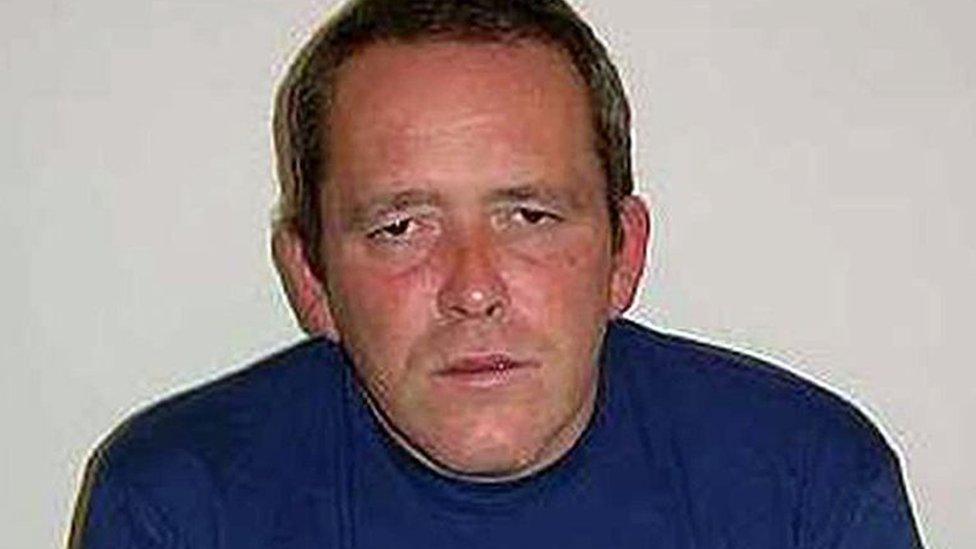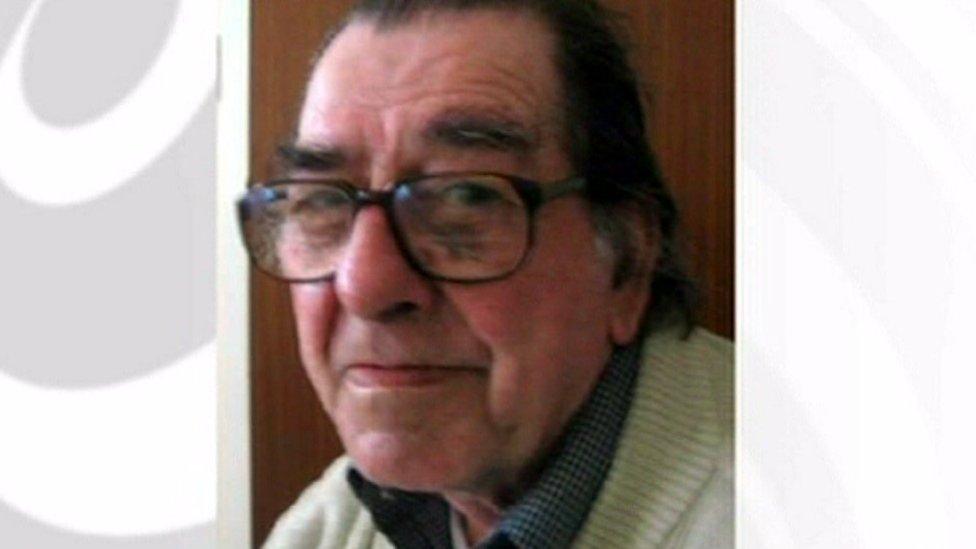Royston Jackson: Double murderer stockpiled drugs and overdosed
- Published

Double murderer Royston Jackson died of cancer in March 2019
A double murderer overdosed on pain medication he had hidden in jail days before he died from terminal cancer, a report has found.
Royston Jackson, 52, died on 10 March while serving a whole-life term at HMP Whitemoor in Cambridgeshire for two killings nearly 20 years apart.
The Prison and Probation Ombudsman (PPO) said the overdose on 1 March should not have been possible.
HMP Whitemoor's healthcare provider said it accepted the recommendations.
Jackson, a turkey catcher from Norwich, was convicted of the murder of sex offender Gordon Boon, external, whose body was found dumped in a lane at Great Witchingham in Norfolk in 2008.
The killing took place two years after Jackson had been released after serving 16 years of a life sentence for the murder of teenager Stephen Raven, external in Essex in 1989.

Gordon Boon was the second of Jackson's victims
The judge at Jackson's trial described him as a "very dangerous man".
He had been diagnosed with oesophageal cancer in March 2018 and began chemotherapy treatment four months later.
The cancer had spread to his liver, lungs and abdomen by December 2018 and he was placed in palliative care.
The PPO said Jackson had been hiding some pain medication for "a long time" and took an overdose in March.

Jackson was an inmate at HMP Whitemoor in March, Cambridgeshire
Jackson was taken to hospital, telling people he took the drug because he was in pain, but the PPO said the overdose "did not impact" his death.
However, it added: "It should not have been possible for Mr Jackson to able to hide his medication and take an overdose."
Northamptonshire Health NHS Foundation Trust, which provides healthcare for the jail, said it had "since developed a robust action plan" for the prison.
A spokeswoman added: "High-quality and safe care is always our priority. It was noted by the clinical reviewer that the care Mr Jackson received was equivalent to that which he could have expected to receive in the community."
- Published6 November 2019
